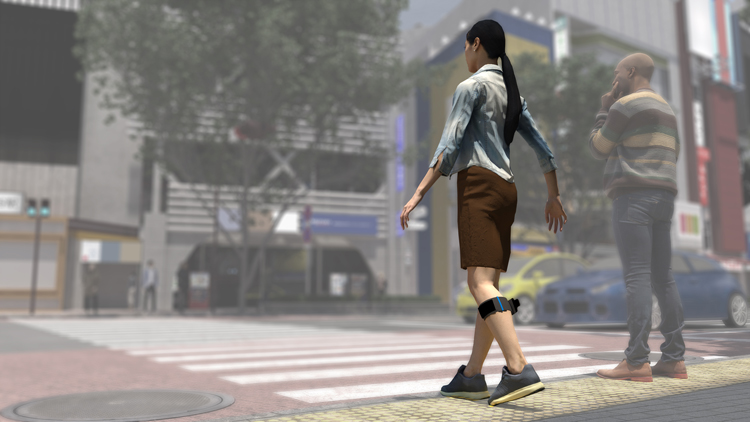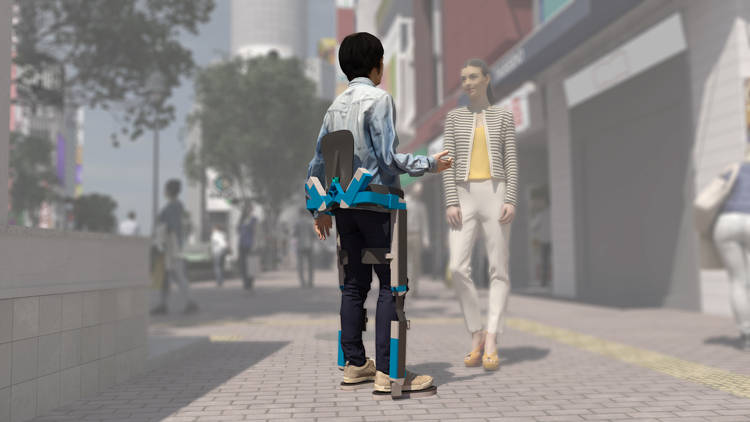Designers reimagine the wheelchair for £3million Toyota competition
Five teams are vying for the top prize for the Mobility Unlimited Challenge, which has called for product prototypes that aim to improve the daily lives of those with disabilities.

Toyota has announced the finalists for a $4million (£3.1million) global competition in a bid to redesign the wheelchair and change the lives of those living with lower-limb paralysis.
The five teams, which come from the US, Japan, Italy and the UK, will each receive $500,000 (£392,325) to develop their concepts, while an overall winner, which will be announced in 2020, will receive a further $1 million (£784,700).
Seed funding of $50,000 (£39,230) was also offered to 10 teams during the application process, to enable them to develop their concept and prototype. This brought the overall funding of the competition up to $4 million (£3.1million).
The competition, named the Mobility Unlimited Challenge, has been organised by charities the Toyota Mobility Foundation and the Nesta Challenge Prize Centre.
Give wheelchair users “greater independence”
The Mobility Unlimited Challenge launched in 2017 and was open to engineers and designers across the world, with the brief asking them to submit designs that could “improve the mobility and independence” of people with lower-limb paralysis, according to Toyota.
The proposed products were required to “integrate seamlessly” into users’ lives, be comfortable and easy to use, and provide “greater independence and participation in daily life”, the company adds.
The resulting finalists include concepts for new wheelchairs, orthotics equipment, leg braces and “exoskeleton”-type chairs, meaning they are frame-based.
Finalists include: US-based Evowalk, by US-based team Evolution Devices, which is a smart, wearable leg sleeve that helps people with partial lower-limb paralysis regain their mobility using sensors that predict their walking motion and stimulate their muscles; Italy-based Moby, an app-based wheelchair sharing scheme using electric-powered chairs; UK-based Phoenix Ai Ultralight Wheelchair, a lightweight, self-balancing wheelchair that aims to get rid of painful vibrations; Japan-based Qolo, an exoskeleton chair that allows users to sit or stand; and US-based Quix, another exoskeleton-based chair that aims to give users “fast, stable and agile” upright mobility.
Inventions could “change the lives” of many people
In total, 80 entries were received from 28 countries, and finalists were chosen by a global judging panel including representatives from the Toyota Research Institute, the National Spinal Injuries Centre and Tech4Life, alongside disability rights advocates.
Ryan Klem, director of programmes for Toyota Mobility Foundation, says: “We think that the technology incorporated in these devices could change the lives of a huge number of people around the world – not just those with lower-limb paralysis, but also those with a wider range of mobility needs.”
Charlotte Macken, programme manager at Nesta’s Challenge Prize Centre, adds: “The pace of innovation in personal mobility devices is slow, due to small and fragmented markets, and difficulties in getting new technology funded by healthcare systems and insurers.
“This can make the field unattractive to the very people who could help change the world,” she adds. “We hope that challenges like this can inspire innovation and are excited to see how the five finalists use this opportunity to develop their ideas further.”
Winner announced in 2020
The World Health Organisation (WHO) estimates there are 250,000-500,000 new cases of spinal cord injury globally every year, which can lead to lower-limb paralysis and wheelchair use.
The overall winner of the Mobility Unlimited Challenge, who will receive $1 million (£784,555), will be announced in 2020 in Tokyo, Japan. Read more about the competition here.




All three-dimensional (3D) renders by illustrator Simon McKeown.
-
Post a comment




